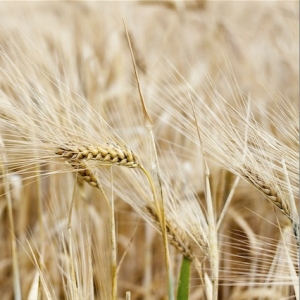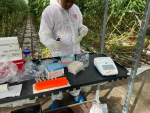The Swedish University of Agricultural Sciences has discovered a strain of yeast that may improve the resilience of harvested crops to mould.
The discovery was made by chance when, during a bio-control study, researchers noticed that one particular silo of grain did not contain any mould. After closer inspection, they discovered a number of tiny white dots growing all over the grain.
Further analysis showed the mystery substance to be a strain of yeast that was producing large quantities of the substance ethyl acetate, which was inhibiting the growth of mould.
Initial trials of the new microorganism have been a success in Sweden. Now along with the help of Swedish company Jästbolaget, project coordinator Matilda Olstorpe is trying to develop the system into a large-scale publicly available product.
"It is really quite a simple process," explains Olstorpe. "You take the grain, or whatever it is that you wish to preserve, and you inoculate it with the yeast before placing it in the storage system. There is then no need to even dry the grain, so it can be put into storage straight from the field while still quite wet."
This system presents potentially huge benefits for humid countries, where the air is often so moist that this alone can cause the growth of moulds on grain.
Growing enough grain to feed an expanding population is already a big problem, but suitable storage is also an issue. In addition, the new method could decrease the introduction of toxins and energy costs caused by small scale drying techniques.
Development of the yeast as a product has not been without its problems, however, Olstorpe sees this as more of a technical problem, which can be overcome.
A project has now begun in Cameroon, carrying out pilots of the system to see if it can work effectively in the field. "We want to teach people to maintain their own cultures of the yeast, so they can use it as and when it is needed," says Olstorpe.



















